If you are looking for a recipe to step up your roast carrots game, then this recipe for harissa carrots is so simple and so delicious. It will become your go to carrot recipe in no time.
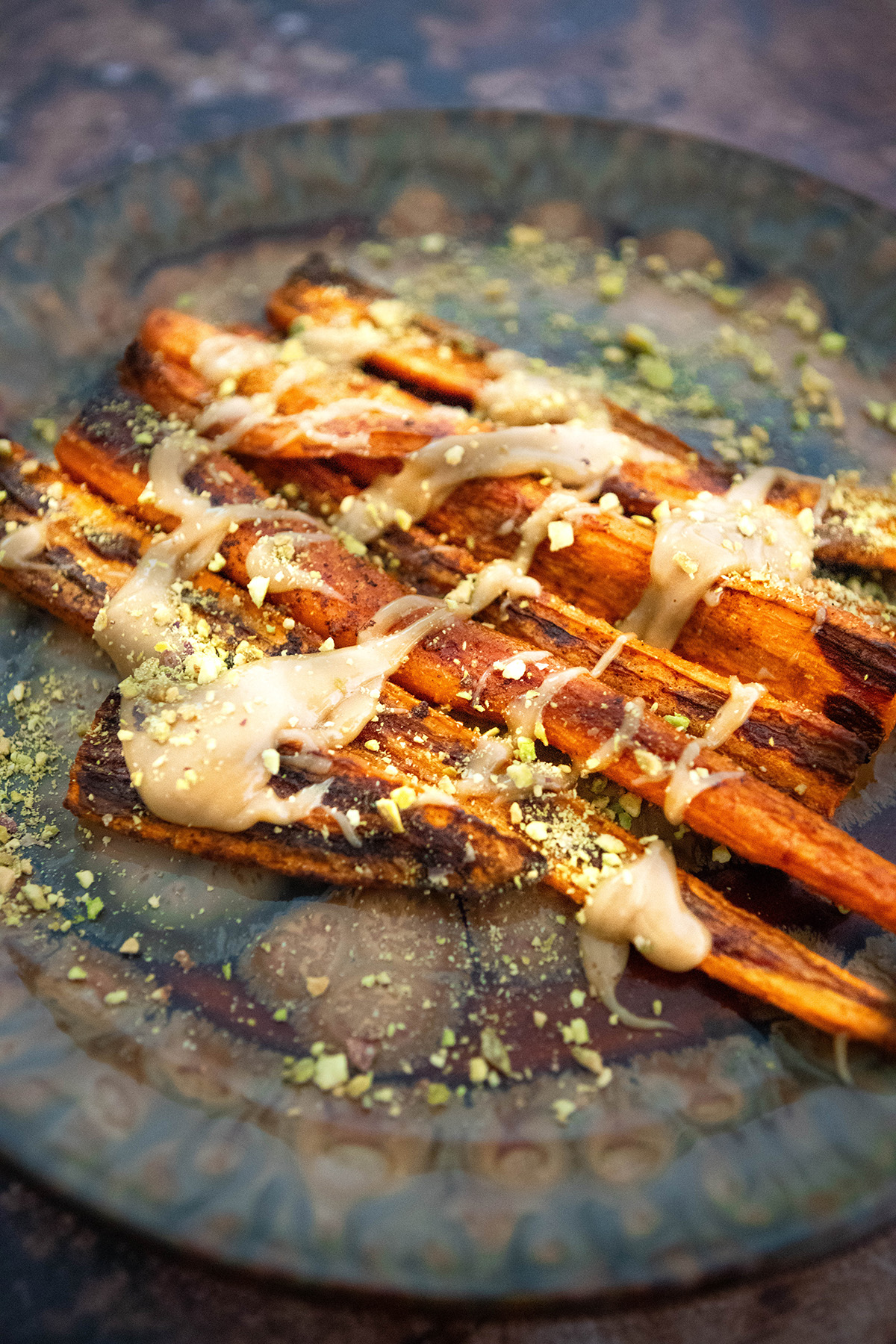
What is harrisa?
Harissa is a spicy and flavorful chili paste that originated in North African cuisine, particularly in countries like Tunisia, Morocco, and Algeria. It’s a versatile condiment that adds heat and depth of flavor to a variety of dishes. Harissa typically consists of a blend of chili peppers (often red ones), garlic, olive oil, spices like cumin and coriander, and sometimes additional ingredients like tomatoes and roasted red peppers.
The paste can vary in heat intensity, ranging from moderately spicy to quite fiery, depending on the type and quantity of chili peppers used. Harissa is often used as a marinade for meats, poultry, or seafood, as well as a flavor booster in stews, soups, and tagines. It’s also spread on bread, used as a dip, or added to couscous and rice dishes to infuse them with its rich and aromatic flavor profile.
Harissa has gained popularity beyond North Africa and can now be found in international cuisines and gourmet markets worldwide, where it adds both heat and a complex depth of flavor to a wide range of culinary creations.
Harissa can come as a harissa paste or as a spice. In my harissa roasted carrots I like to use the spice rather than the paste. However, should you wish to use a paste you can use spicy harissa or regular harissa. If you do want to get the best results, I would suggest you stick to the recipe.
Often a sweetener gets paired with carrots, and that tends to be honey or maple syrup. In this recipe however, we are sticking with our Middle Eastern ingredients and we are using silan which is a date syrup. Silan will elevate all of your carrots recipe.
Silan, also known as date syrup or date honey, is a sweet and rich syrup made from dates. It is a traditional condiment that has been used in Middle Eastern and North African cuisines for centuries. Silan is made by cooking down dates into a thick, sticky syrup with a smooth consistency and a dark brown color.
What is silan?
Silan has a natural sweetness that comes from the sugars present in the dates. It offers a deep and complex flavor profile with hints of caramel and a touch of fruitiness. It can be used as a sweetener in both savory and sweet dishes, providing a unique and exotic taste.
In Middle Eastern cooking, silan is commonly used as a topping for various dishes, such as yogurt, pancakes, waffles, and ice cream. It’s also brushed onto pastries and baked goods for added sweetness and shine. Additionally, silan can be incorporated into marinades, dressings, and sauces to enhance flavor and impart a touch of sweetness.
With its rich history and versatile applications, silan is not only a delicious natural sweetener but also a delightful way to infuse Middle Eastern flavors into a wide range of dishes from around the world.
Ingredients for harissa carrots:
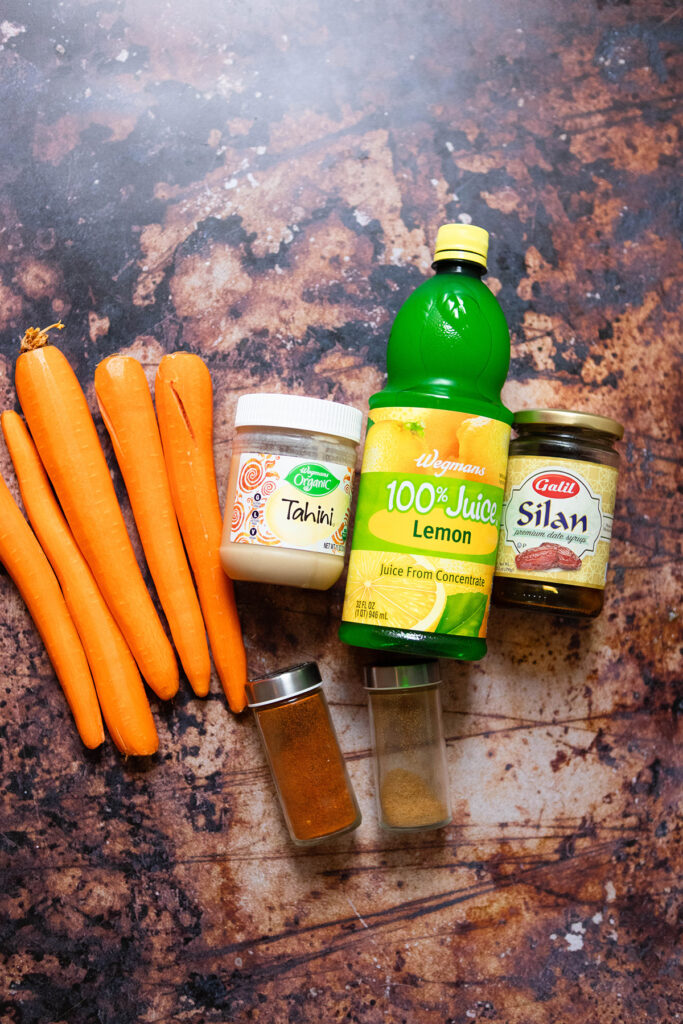
Carrots: for this recipe you should not use baby carrots. I use the humble carrot, regular carrots, aka orange carrots. You can use rainbow carrots if you like, but, they can be difficult to find at times.
Harissa: Use the dry spice blend for this recipe. If you can only find the harissa sauce, that is fine but typically try to go for the spice.
Silan: The date syrup is where we will get our sweetness from in our sauce
Tahini: a delicious middle eastern paste made from sesame seeds that will go into our sauce
Cumin: ground cumin is one of the spices in addition to harissa used
Extra Virgin Olive Oil: by glazing the carrots, it will help them bake and bring out the carrot’s natural sweetness
Pistachios: A topping for the carrots`
Lemon Juice: for your sauce, you can use fresh lemon juice or from a bottle.
How do you make harissa carrots?
Set the oven to 425°F and peel the carrots: you want them peeled for this recipe
On a large rimmed baking sheet: place the peeled carrots and use a drizzle of olive oil. Make sure to coat all of the carrots.
Add the harrisa: and the cumin. Make sure to coat the carrots. If you wish, you can also add sea salt (or kosher salt) at this time.
Bake the carrots: Place in the oven and bake for 30 minutes. Halfway through, turn the carrots to make sure all sides are properly roasted.
While they are baking: make the sauce. Mix the silan, tahini, and lemon juice in a bowl. Whisk. If you find it is too thick, add a bit more lemon juice, or some water.
Take the: harissa-roasted carrots from the oven. Transfer them to a serving platter. Top with the sauce, and then the pistachios. Serve immediately.
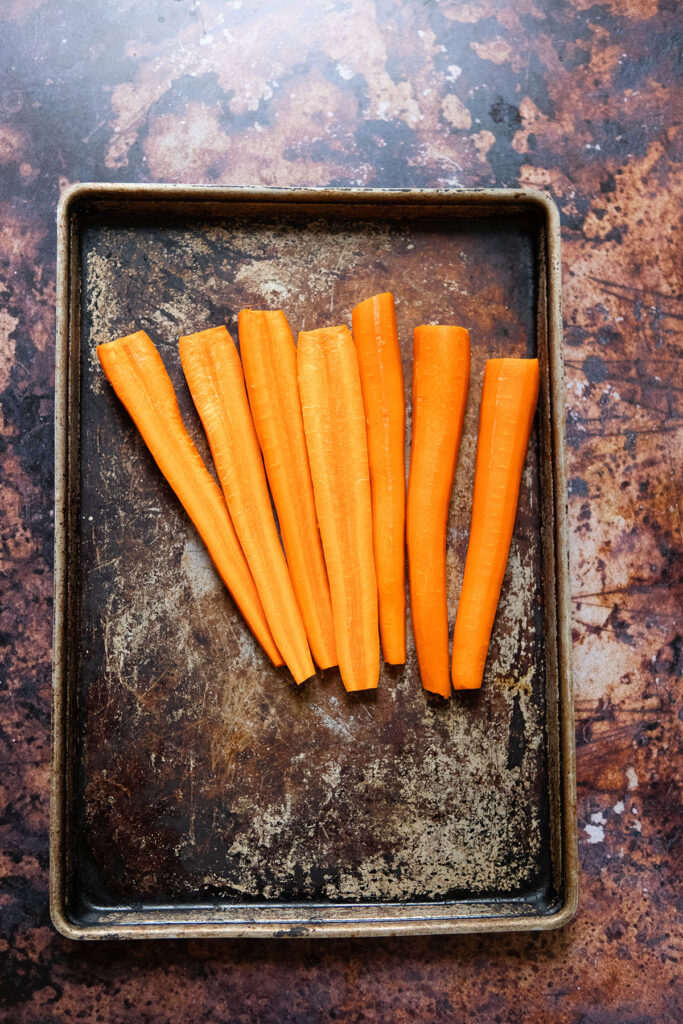
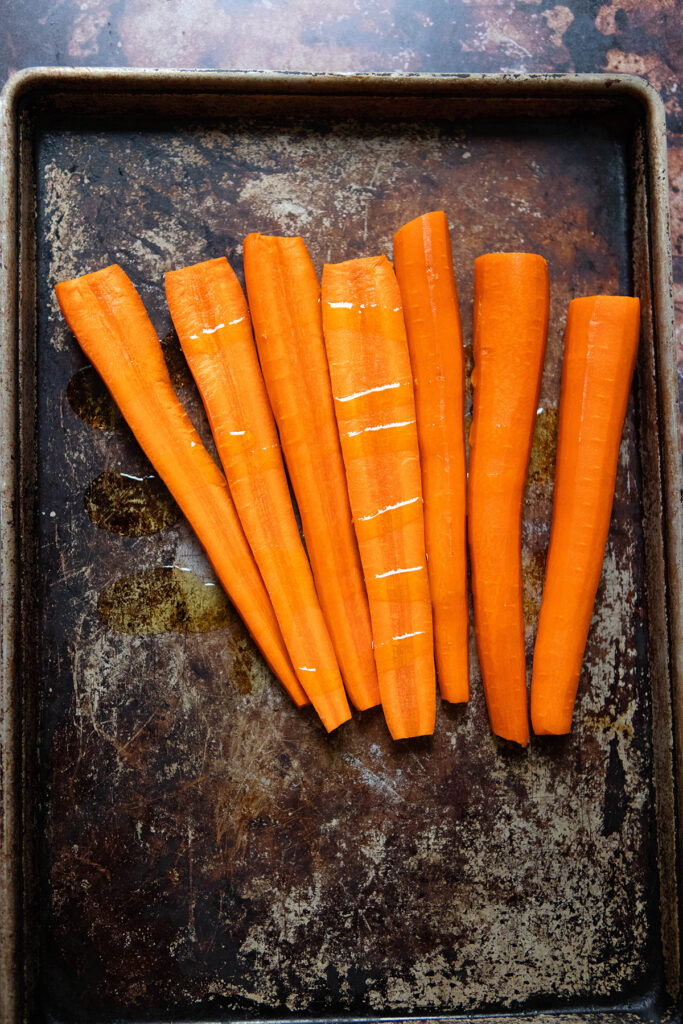
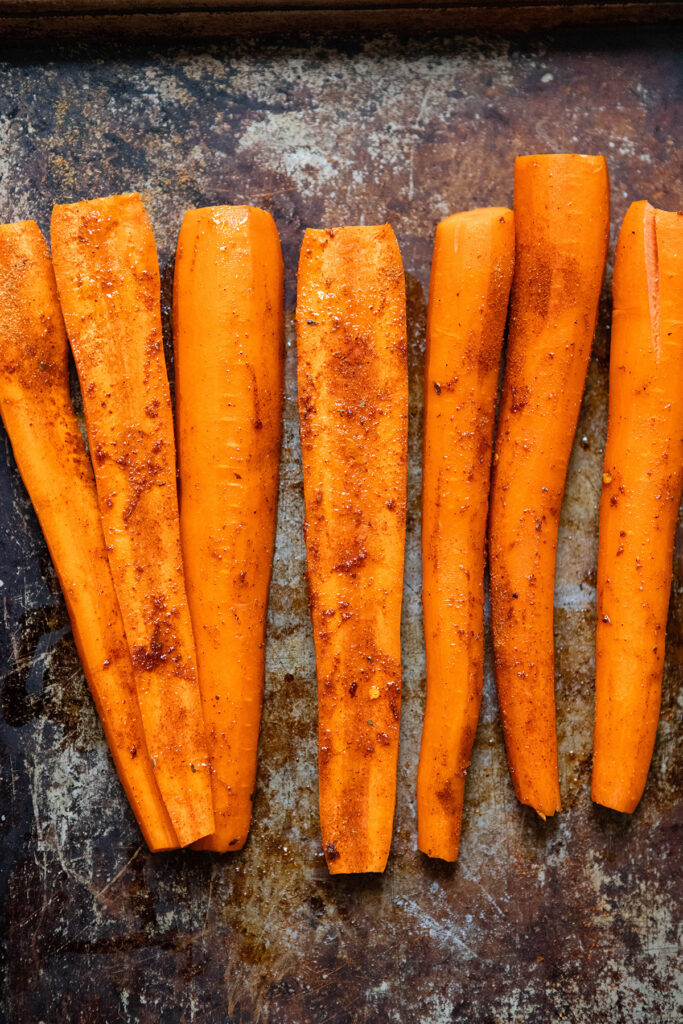
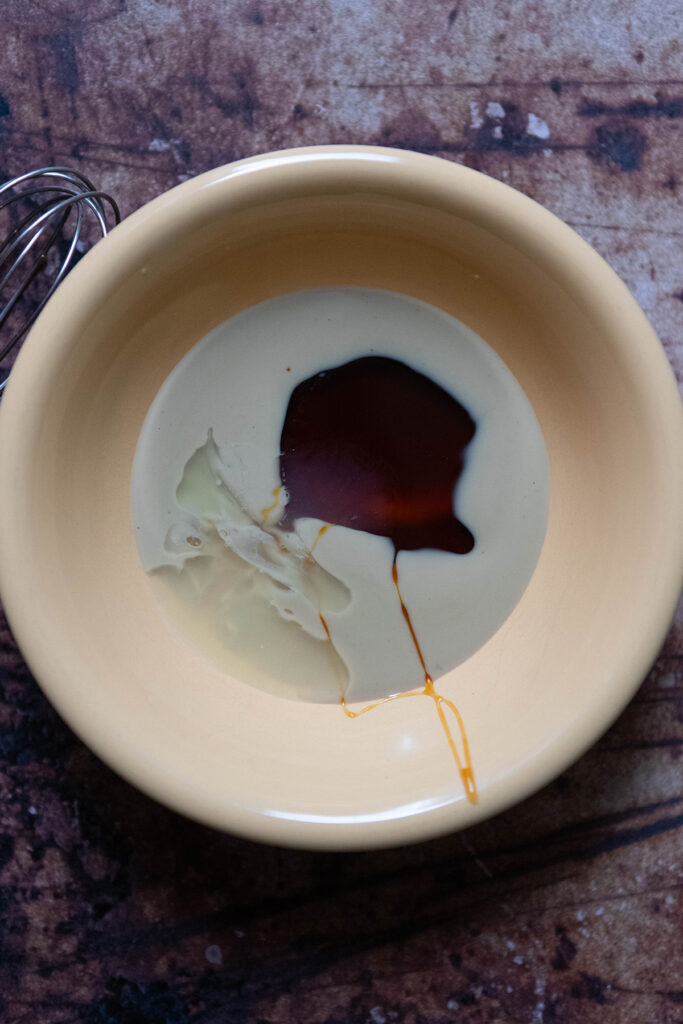
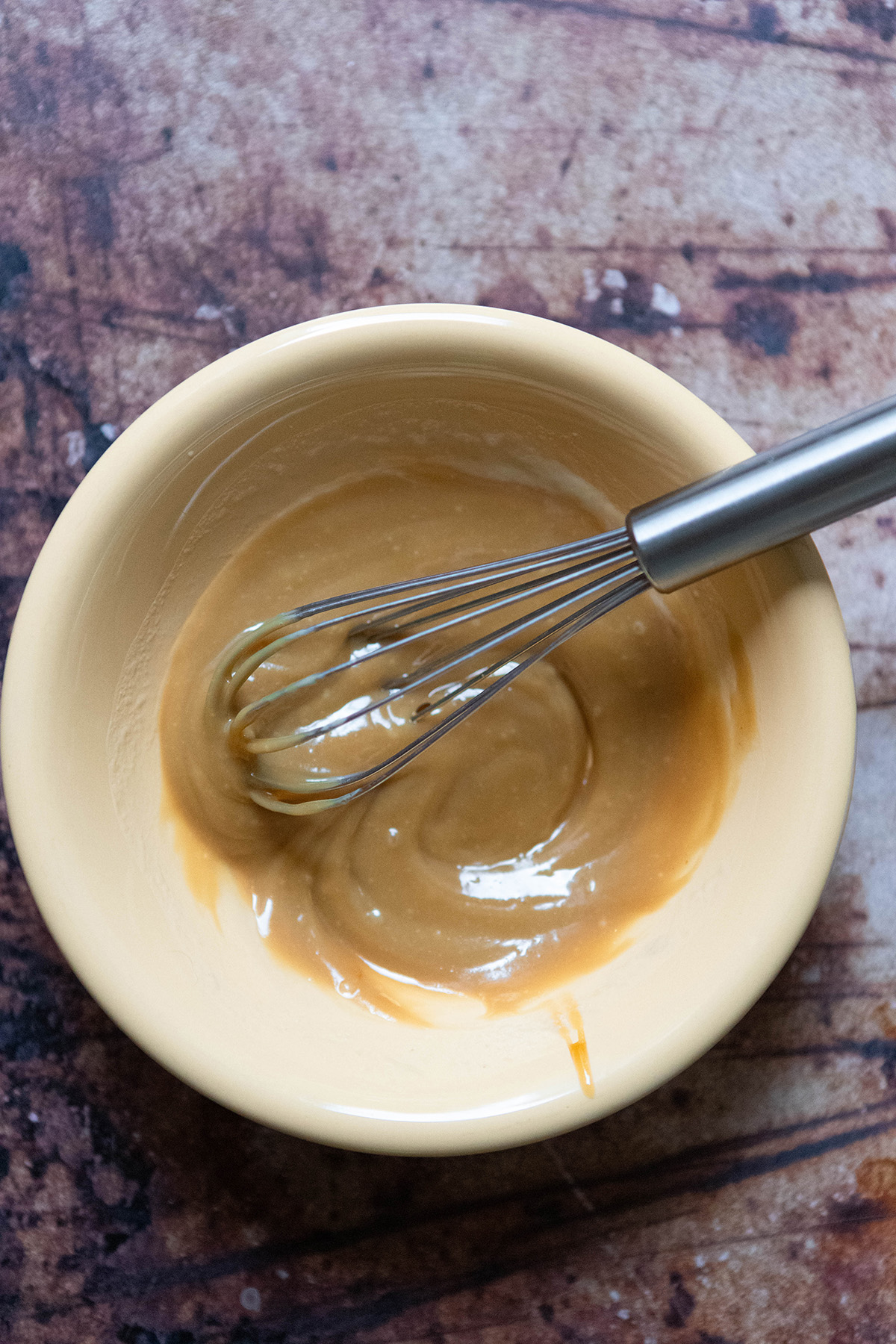
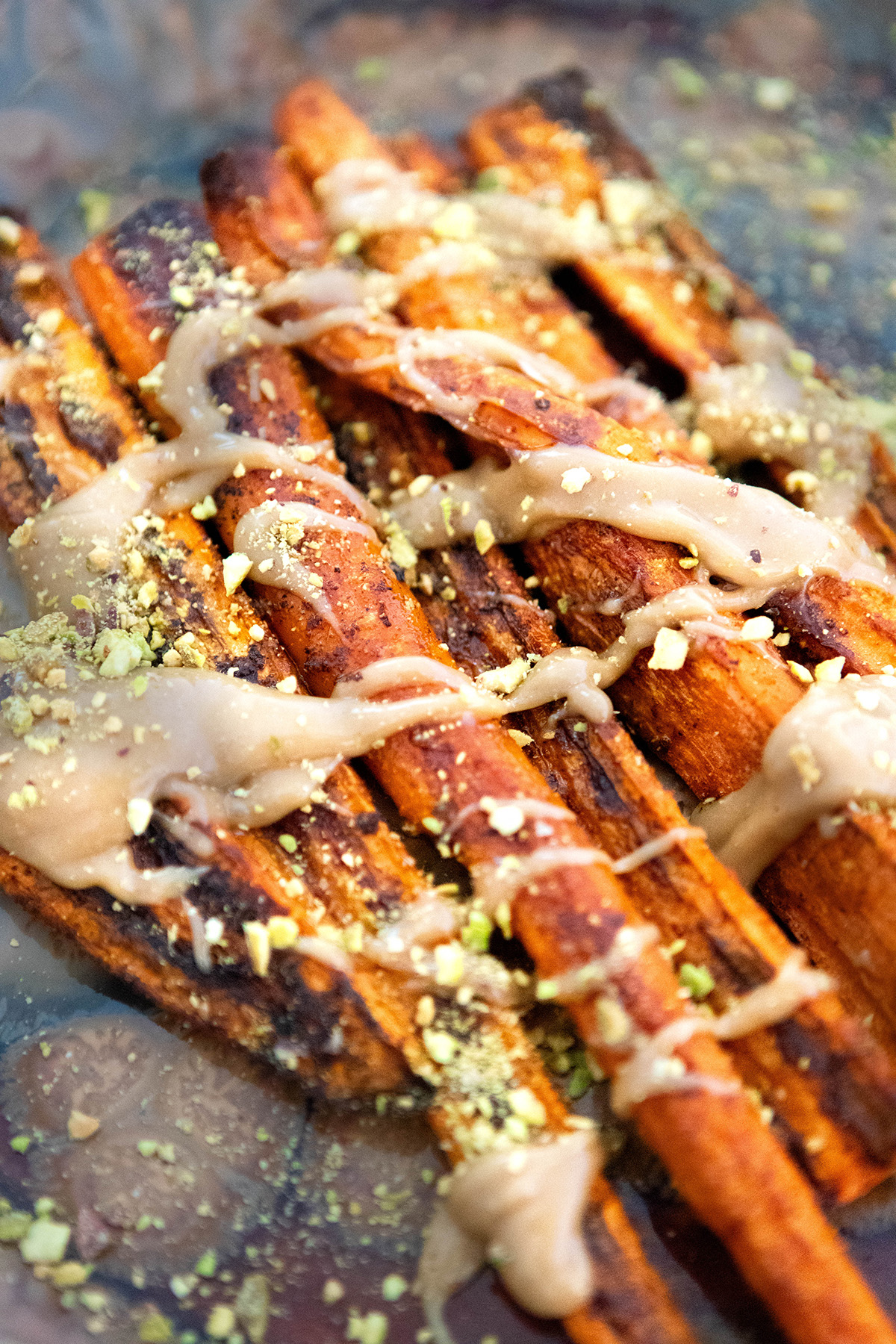
Notes:
If your whole carrots are too large, slice them in half so that you have smaller pieces. This way the carrots will all cook evenly.
Why should you make this harrisa carrots recipe?
This recipe is the perfect side dish and is full of sweet flavor. You have the sweetness of the carrot in addition to the sweetness for the date and tahini sauce. Plus, on a serving plate, it is a stunning center piece to any table. This roasted carrot recipe will soon become a favorite in your household because it is that good.
Can I add anything to these harissa carrots?
If you want to stay on theme and in the Mediterranean, you could top these with feta cheese. Greek yogurt or labneh is often used in this part of the world as well. However, instead of a spread labneh, I would use a whipped feta. However, you really do not need anything else in this recipe. There is so much flavor in this that it makes a perfect recipe for regular dinners and holiday dinners alike. It will become a staple of your roasted vegetables.
How to store these carrots
Cool Completely: Allow the roasted carrots to cool completely at room temperature before storing. This helps prevent condensation and moisture buildup in the storage container.
Refrigeration: Place the roasted carrots in an airtight container or a resealable plastic bag. Seal the container tightly to prevent air from getting in, which can cause the carrots to dry out.
Refrigerate: Store the container of roasted carrots in the refrigerator. They can typically be stored for up to 3-5 days without significant loss of quality.
Avoid Freezing: Roasted carrots have a higher water content than raw carrots, and freezing can lead to changes in texture when they thaw. It’s best to enjoy them within the recommended refrigeration timeframe.
Reheating: To reheat the roasted carrots, place them in an oven preheated to about 350°F (175°C) for a few minutes until they are warmed through. You can also reheat them in a microwave, but be careful not to overheat them and make them mushy.
LEAVE A RATING AND REVIEW!
Did you love this recipe? If you did, let me know! And let others know too by leaving a comment and star rating. Reviews are incredibly useful in helping other people find my site and make my recipes. Thank you so much!
Laura
Looking for similar recipes?
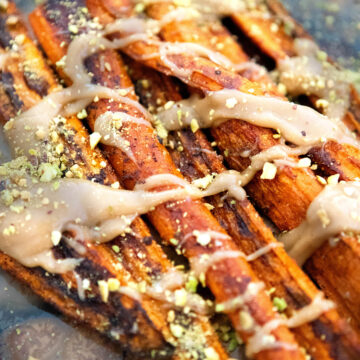
Harrisa Carrots : Roasted Carrot Recipe with Harissa
Ingredients
- 10 Carrots
- 2 tablespoon Olive Oil
- ½ tablespoon Cumin
- 1 tablespoon Harrisa
- ¼ cup tahini
- 2 tablespoon Silan Date Syrup
- 3 tablespoon Lemon Juice
Instructions
- Set the oven to 425°F and peel the carrots: you want them peeled for this recipe
- On a large rimmed baking sheet: place the peeled carrots and use a drizzle of olive oil. Make sure to coat all of the carrots.
- Add the harrisa: and the cumin. Make sure to coat the carrots. If you wish, you can also add sea salt (or kosher salt) at this time.
- Bake the carrots: Place in the oven and bake for 30 minutes. Halfway through, turn the carrots to make sure all sides are properly roasted.
- While they are baking: make the sauce. Mix the silan, tahini, and lemon juice in a bowl. Whisk. If you find it is too thick, add a bit more lemon juice, or some water.
- Take the harissa-roasted carrots from the oven. Transfer them to a serving platter. Top with the sauce, and then the pistachios. Serve immediately.

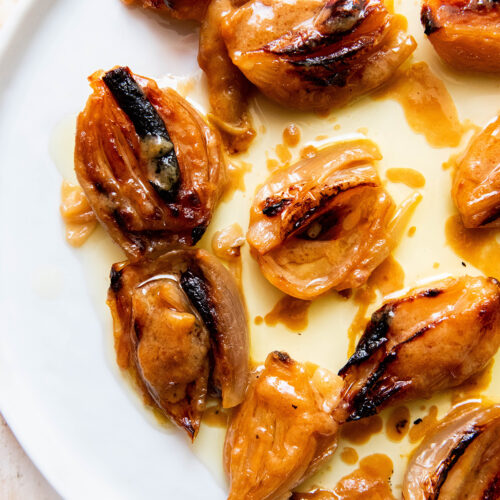
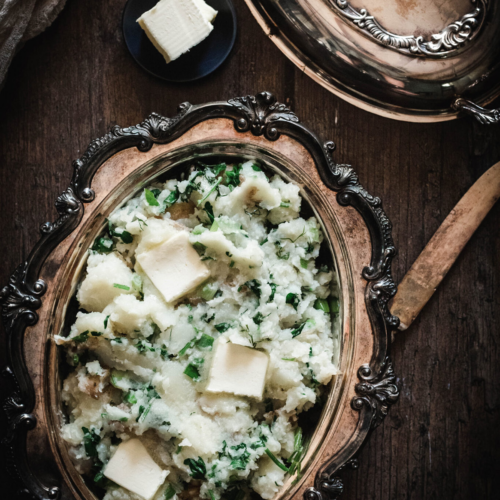
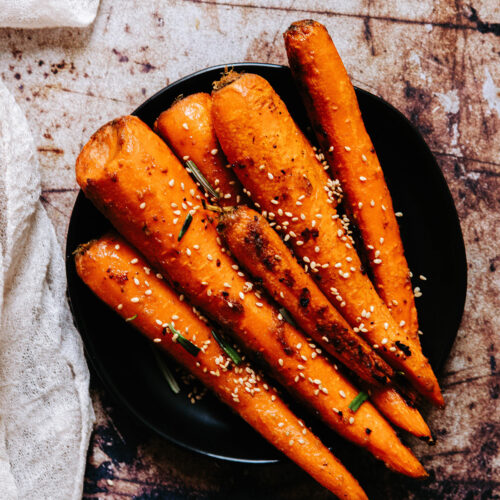
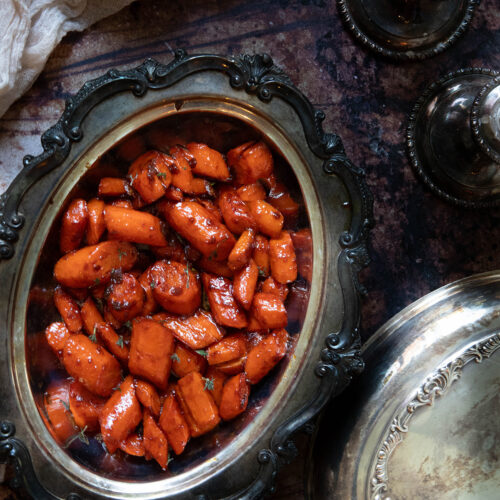
Dianna Wilson Sirkovsky says
I tried these and they are the most delicious roasted carrots I’ve ever tasted! Thanks for this great recipe.
Angela says
The best carrot recipe ever! It totally elevates the humble vegetable to a special occasion side dish. Don’t wait for the special occasion; make it anytime!
Laura Sirkovsky-Kauffman says
Agreed! They are great any day 🙂